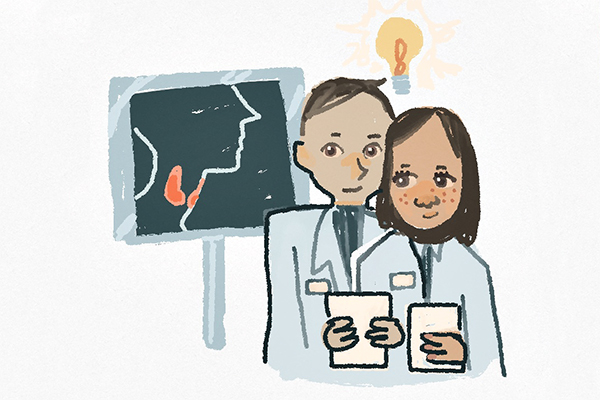After her biopsy for thyroid cancer came back with inconclusive results, chemistry graduate student Amanda Helms, was recommended to undergo surgery. Months of recovery and many medical bills later, Helms said she was told her surgery wasn’t necessary.
To prevent further unnecessary surgeries, researchers from UT and the Baylor College of Medicine developed a preoperative thyroid cancer test. Livia Eberlin, co-principal investigator and assistant professor of chemistry and diagnostic medicine, said the new test uses mass spectrometry imaging. The imaging identifies metabolites, or small molecules produced during metabolism, that are created by cancerous cells.
“Every 1 in 5 people who use the current diagnostic test for thyroid cancer gets inconclusive results,” Helms said. “I happened to be that one. I ended up not needing my surgery.”
Following her partial thyroid removal surgery, Helms said she had to wait eight months for her diagnostic results.
“It was half a year of waiting and agonizing over what the results would be,” Helms said. “With this new test, you can hear back in hours instead of days or weeks like I did, and less people will go through unnecessary surgeries.”
James Suliburk, test researcher and chief of endocrine surgery at Baylor College of Medicine, said the accuracy of diagnostic tests is important because partial thyroid removals are expensive, put patients at risk of needing thyroid hormone therapy and can cause surgical complications.





















